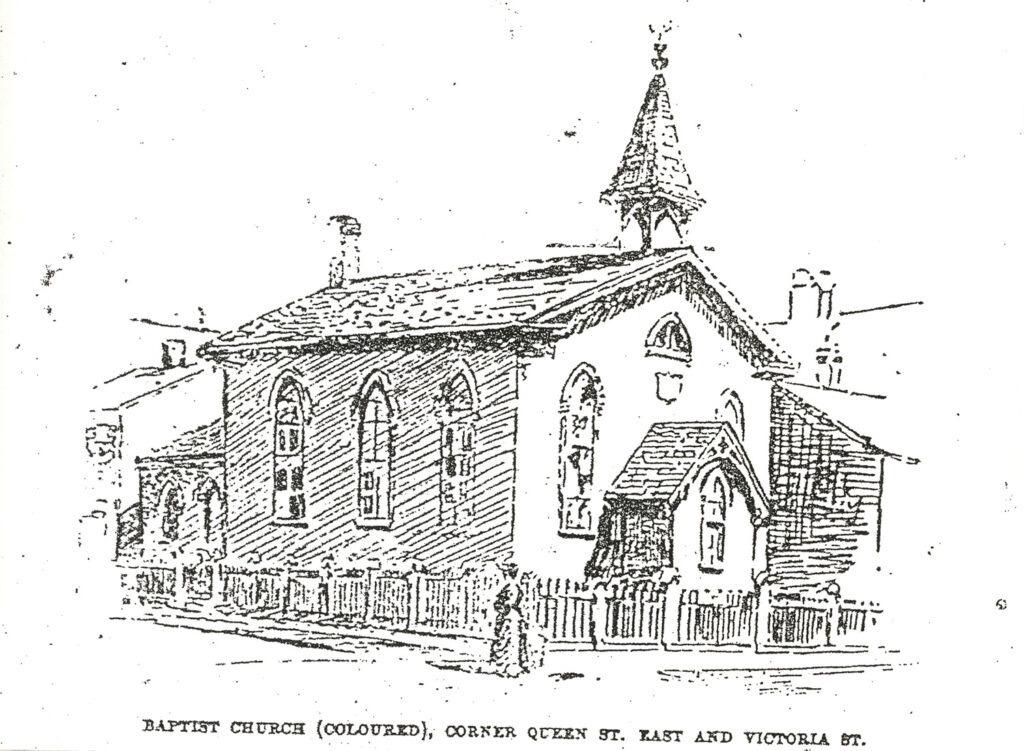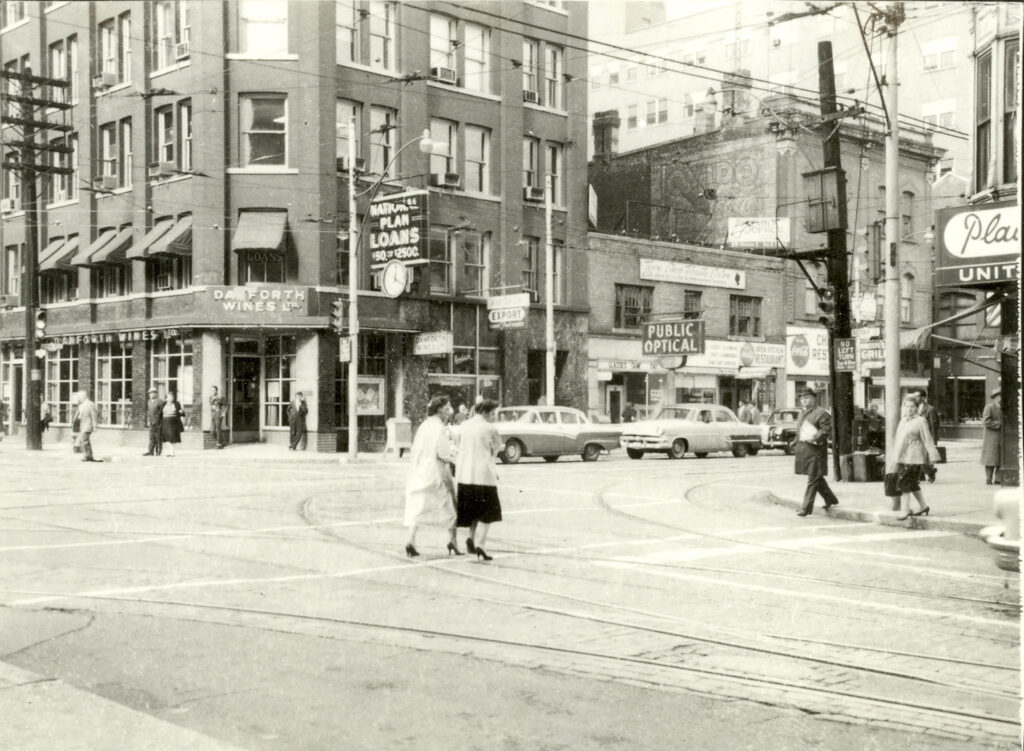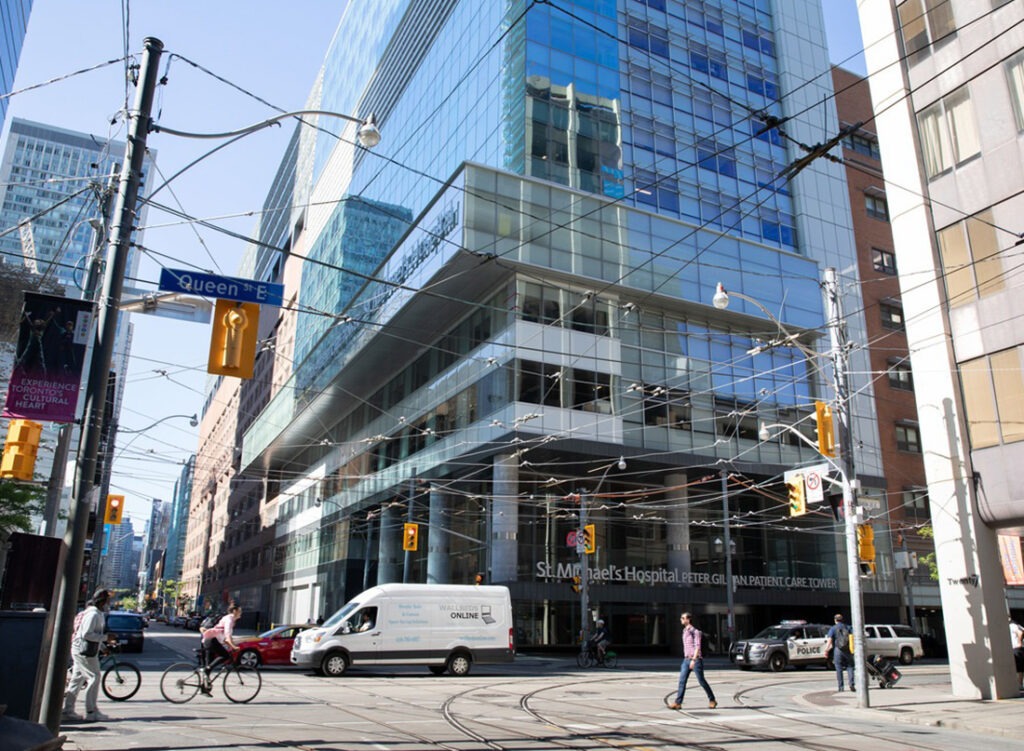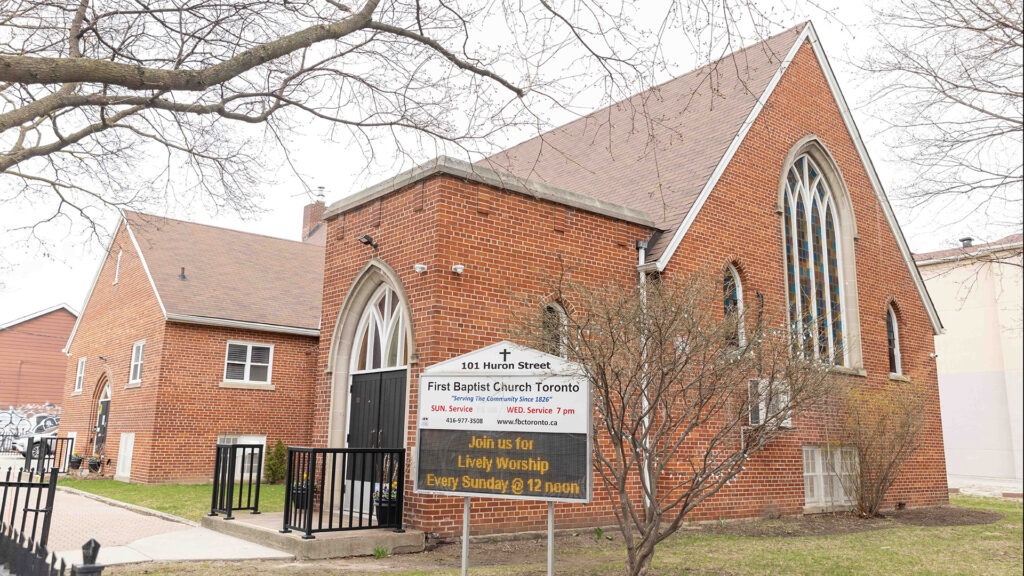Honouring Unity Health’s shared history with First Baptist Church
A shared legacy of healing and hope
At the corner of Queen and Victoria streets – where St. Michael’s Hospital, a site of Unity Health Toronto now stands – there’s a powerful story woven into the city’s history. It’s the story of resilience, care, and community.
In 1826, Elder Washington Christian, and 12 other survivors of the transatlantic slave trade who made their way to Toronto (then called York) via the Underground Railroad, established the First Baptist Church congregation (then called “Colored Calvinistic Baptist Church”). Fifteen years later, in 1841, they built their first church building on this land. It quickly became more than a place of worship. It was a hub for anti-slavery and abolition efforts, where all could seek refuge and support.
Around the turn of the century, First Baptist Church sold the land and relocated. Years later, the Sisters of St. Joseph built St. Michael’s Hospital near this intersection, later expanding to Queen and Victoria St.
Now, nearly 200 years since its establishment, First Baptist Church continues to care for all who enter its doors – just as St. Michael’s Hospital and all of Unity Health Toronto’s sites work to heal the mind, body and soul of every patient who walks through our doors. By acknowledging our shared history and values, we are honouring our past with the hope of building a better, more inclusive future for care.
Gallery
Unity Health recognizes the resilience and strength of First Baptist Church as a forerunner for establishing a place of human dignity, community, and inclusion for the Black community and all people. It is one of the very first Black institutions in Toronto, and we are grateful for its contributions and teachings.
In sharing information about this land, it’s important to acknowledge that long before the First Baptist Church was built and St. Michael’s Hospital was established, this land was inhabited by many First Nations. It is part of the Dish with One Spoon Covenant territory, and as the traditional and ancestral land of many Nations, it is land that is part of Treaty 13. This treaty was signed with the Mississaugas of the Credit in 1787. This community is home to many First Nations, Inuit and Metis peoples, and Unity Health is dedicated to making sure Indigenous communities continue to feel welcomed here.
We acknowledge that all non-Indigenous people who live and work on this land, are Treaty peoples, and share responsibility for establishing and maintaining mutually respectful relationships including those who came here as settlers – as migrants either in this generation or in generations past. We pay tribute to those ancestors of African origin and descent, who have inherited a complex treaty relationship by ending up on these lands involuntarily as a result of the Trans-Atlantic Slave Trade and Slavery.
Last updated August 01, 2025













